《地球大数据支撑可持续发展目标报告(2024)》发布
Release of the "Big Earth Data in Support of the Sustainable Development Goals Report (2024)"
On September 25, the International Research Center on Big Data for Sustainable Development Goals (SDGs), the world's first international research institution dedicated to using big data to support the United Nations 2030 Agenda for Sustainable Development, held a press conference in Beijing. The center announced the release of its latest report, "Big Earth Data in Support of the Sustainable Development Goals Report (2024)." According to the report, China has achieved 126 (55.5%) of the SDGs ahead of schedule.
This is the sixth consecutive year that the International Research Center on Big Data for SDGs has published this report since 2019. The 2024 report utilizes multi-source satellite remote sensing data and artificial intelligence algorithms to conduct quantitative assessments of seven global SDGs and 227 sustainable development indicators in China. The report also provides quantitative predictions for environmental indicators, suggesting that China is likely to approach or achieve its goals in "Affordable and Clean Energy" (SDG 7) and "Sustainable Cities and Communities" (SDG 11) on schedule based on current trends.
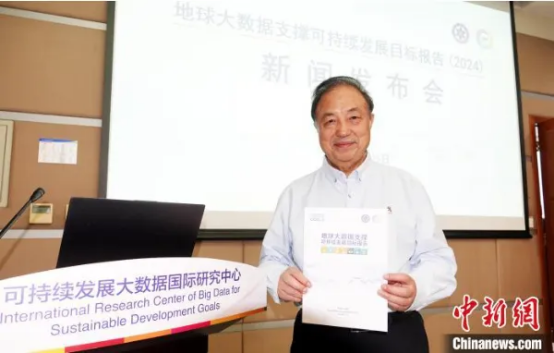
Academician Guo Huadong, Director of the International Research Center on Big Data for SDGs and academician of the Chinese Academy of Sciences, presented the report at the press conference. The report was distributed to delegates at the Future Summit of the 79th Session of the United Nations General Assembly and officially published on the UN's official website. Despite the fact that only 17% of the global SDGs are on their predetermined path according to the UN 2030 Agenda, China's performance has been noteworthy. China has made significant contributions in industrial energy conservation and emission reduction, renewable energy development, and ecological restoration. From 2017 to 2021, the global number of industrial heat sources declined by 9.05%, with China contributing 33.61% of this reduction. Between 2000 and 2023, the annual deployment of offshore wind power globally increased significantly, with China being the main driver of this growth. As of the end of 2023, China's cumulative installed capacity of offshore wind power accounted for about 50% of the global total. Over the past decade, global land productivity has declined by 7.27%, while China ranks first globally in terms of net increased area, with an increase of 467,100 square kilometers.
China has also made positive progress in agricultural water resources management and drinking water safety, public transportation accessibility, energy conservation and emission reduction, and marine pollution reduction. The "Internet + Rural Water Supply" model has improved the drinking water safety for over 62 million rural residents in China. From 2006 to 2020, China's energy intensity decreased by 42.5% cumulatively. In 2022, 90% of China's population had access to convenient public transportation. In 2020, China's carbon emission intensity was 48.4% lower than in 2005. From 2018 to 2023, the level of microplastic pollution in the environmental media of the Yellow Sea Ecological Region remained low to moderate.
In terms of filling data gaps, the 2024 report has produced datasets on global large lake water storage from 2000 to 2021 and groundwater storage changes at a spatial resolution of 0.5 degrees globally from 2003 to 2023 for the first time. In terms of methodological innovation, the report has developed a prediction model for the local climate effects of future cities based on the Random Forest machine learning method. It predicts the impact of local climate effects on urban populations' exposure to high temperatures and humidity under different socioeconomic and emission scenarios for the first time and finds that global climate change is the main driving factor. The report also introduces in detail the advantages of China's Sustainable Development Science Satellite 1 (SDGSAT-1) in monitoring SDG indicators. Through the "SDGSAT-1 Open Science Initiative," the number of countries using this satellite has exceeded 100.
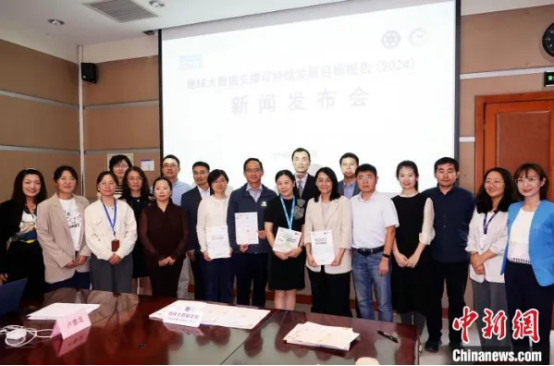
At the press conference, the team members of the "Big Earth Data in Support of the Sustainable Development Goals Report (2024)" project posed for a group photo.
The report also conducts big data monitoring and assessment for the special challenges faced by small island developing countries. The study found that over the past 30 years, coral bleaching stress has increased in frequency in global small island countries; the frequency, intensity, and duration of sea-land heatwaves have increased, and the exposed populations in one-third of these countries have grown by more than 30%. The report urges the international community to take more measures to help small island countries improve their comprehensive capabilities to address climate change challenges.
Csaba Korosi, President of the 77th Session of the United Nations General Assembly, commented that the "Big Earth Data in Support of the Sustainable Development Goals Report (2024)" provides clear and practical information for scientists and policymakers. Data-based monitoring and assessment enhance people's understanding of future challenges and point the way forward for advancing the UN 2030 Agenda and planning subsequent actions. Officials from Mauritius and Papua New Guinea believe that the report is crucial for small island developing countries, providing innovative data support for their sustainable development.
Academician Guo Huadong pointed out that with only six years remaining until the deadline for the UN 2030 Agenda, it is a crucial period for the international community to accelerate progress in the second half of the sustainable development agenda through technological innovation, international cooperation, and policy reform. In response to the demand for monitoring and assessment of SDGs, the team of the International Research Center on Big Data for SDGs has continuously published annual reports and produced a series of sustainable development data products. This is a good practice by Chinese scientists to promote scientific research, support decision-making, and accelerate global sustainable development.



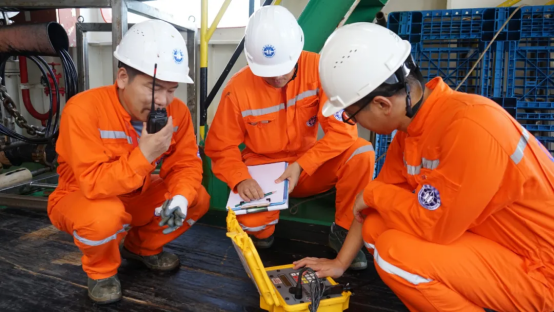
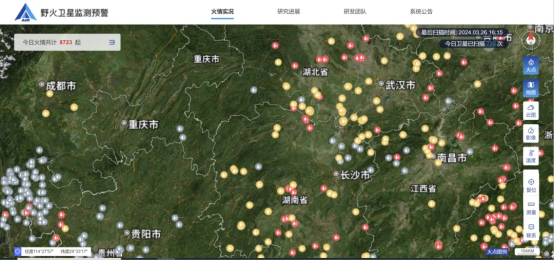
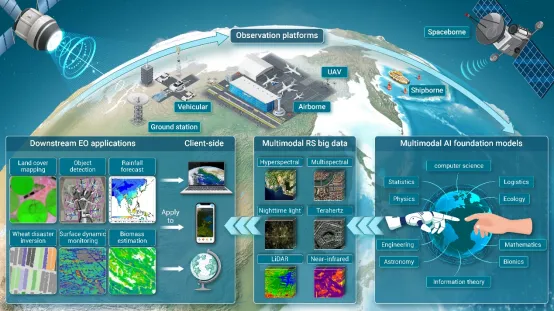
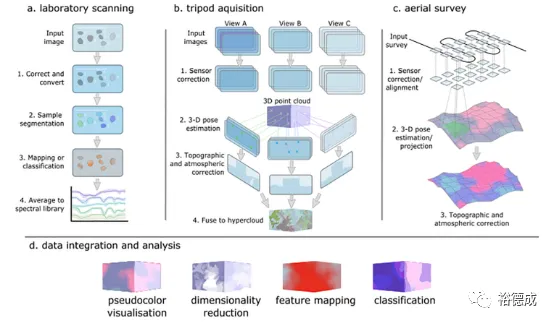




请先 登录后发表评论 ~